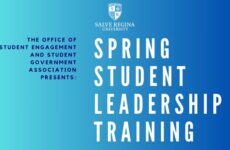By Stephanie Menders | Staff Writer
A new addiction is brewing on college campuses all over America, and it comes in sizes tall, grande, and venti.
In the past decade, coffee has quickly become a staple among college students, second only to the laptop. According to reports from the NPD Group, an organization that tracks American’s consumption trends, more and more college students are drinking coffee. In 2002, approximately 25 percent of college students reported drinking coffee at some point within a two-week period, compared to 39 percent in 2012.
Coffee has become especially popular among college students as an energy booster. This is the case for freshman Kathleen Munoz. Munoz is a nursing student who finds that drinking at least one cup of coffee a day keeps her alert during class and motivated to study in her free time. Munoz says that drinking coffee helps keep her mood positive, even when she’s drinking it to stay up late to study.
Munoz says that she began drinking two cups of coffee a day as a junior trying to maintain a strong GPA in a competitive high school. Munoz says that she was “lucky” if she got two or three hours of sleep on a school night. She says that the habit has continued into college, facilitated by the convenient locations of two on campus cafés. Munoz says that she is more likely to drink coffee at school than at home. “I think it’s great having a Starbucks in the same building I live in,” said Munoz. “It’s convenient.”
The perks of drinking coffee, however, may be outweighed by the price; for example, a tall [small] latte at Starbucks will cost you $3. Five months into her freshman year Munoz estimates that she has spent well over $100 on coffee. “I think it’s natural,” said Munoz. “If you don’t drink coffee in high school, you will in college.”
Veronica Mansour, assistant director in the Office of Career Development, can testify to that statement. “I started drinking coffee when I was a junior in college,” said Mansour. “I would drink two cups whenever I had to pump myself up to write a late-night paper.”
Whether it is before or after class, a late night cramming session, or all of the above, coffee has become an accessible solution for overscheduled and sleep deprived college students. “I’d be concerned that it can become a habit without you realizing it,” said Mansour.
Often students plan their days around finding their next fix. As well as working in the Office of Career Development, Mansour also teaches a Career Life Planning course on Saturday mornings, which is also a critical coffee drinking time.
“The students who show up late have coffee in their hands,” said Mansour.
Briana Tosado, a freshman studying Early Childhood Education, decided a couple months ago to stop drinking coffee for fear that she had become addicted.
“I used to have three cups a day,” said Tosado. “Now I feel a lot healthier and a lot more energetic.”
At the same time, Tosado is able to sympathize with college students’ growing obsession with coffee, especially given the demanding schedule.
“I think that they drink it because it gives them short term energy and it’s nice to have when you’re up late doing homework or have an early class,” said Tosado.
Tosado said that the worst consequence came when it began to affect her schoolwork.
“I would become extremely tired after that short-term energy wore off,” said Tosado. “That only ever forced me to drink more coffee.”
Tosado says that she was “definitely addicted”, and that cutting out coffee was simultaneously the most difficult and the most rewarding decision she has made.













